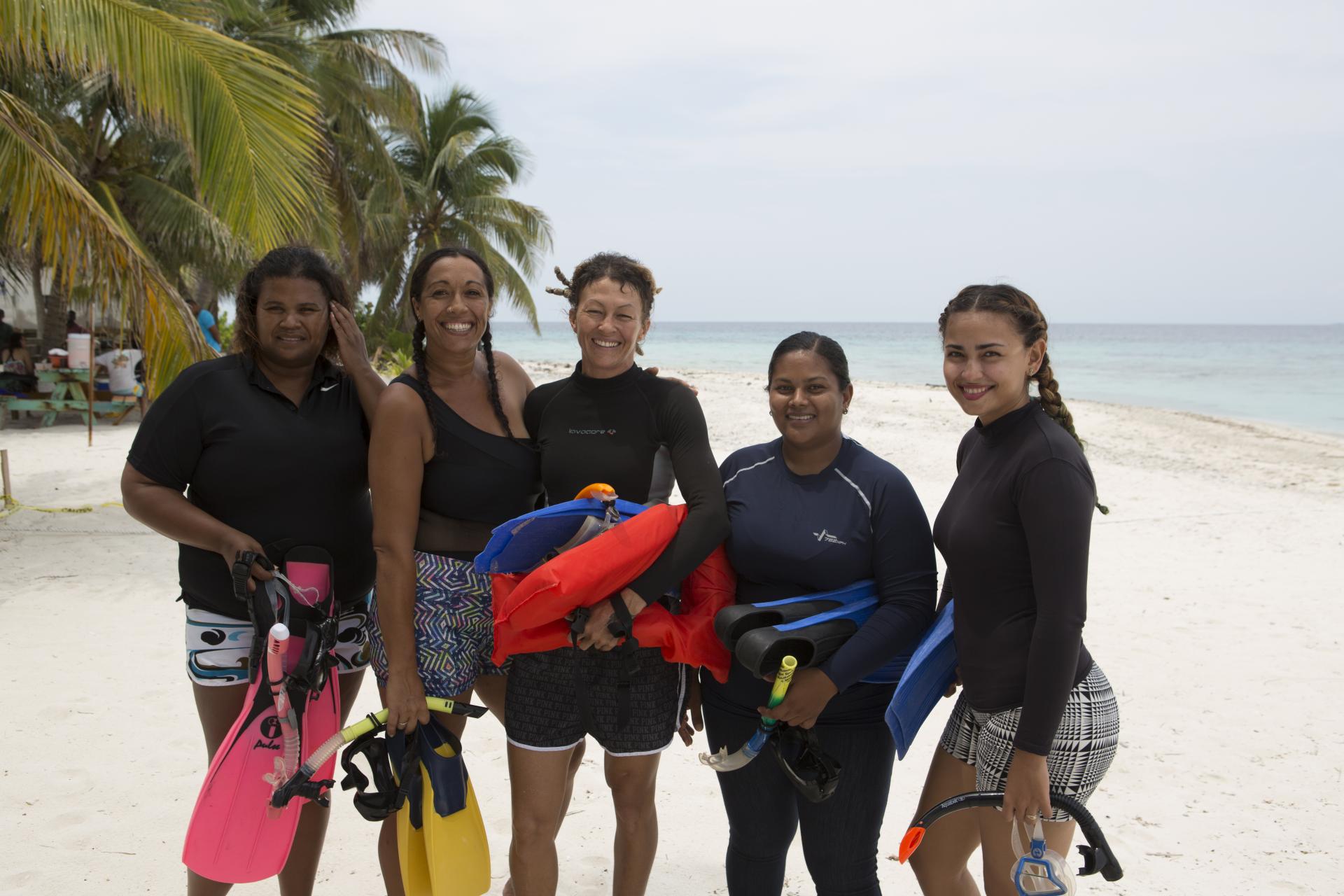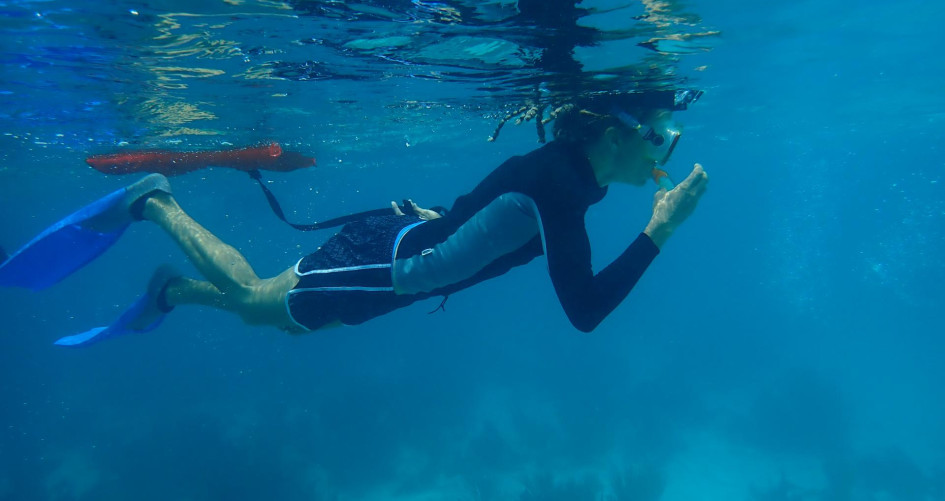This week is Latin American and the Caribbean Regional Climate Week and to celebrate, we are featuring five climate action projects, which are all former Global Climate Action Award winners.
Natura Cosmetics (Brazil)
Natura Cosmetics is the largest cosmetics manufacturer in Brazil and has a number of ongoing sustainability programs. In 2007 the company launched its Carbon Neutral Programme whereby it measures and reduces emissions across its value chain, from the extraction of raw materials through to its production and distribution networks. Instead of using air transport, Natura uses sea or river transportation where possible. All the plastic used in the company’s Natura Ekos range are 100 per cent recycled or green plastic (which is made from sugar cane instead of petrochemicals and is completely recyclable). Emissions that cannot yet be reduced are compensated by contributions to climate friendly UN vetted carbon offset projects. Natura also trades ethically with communities in the Amazon, and the company has helped conserve 1.8 million hectares of forest since it launched its initiatives.
What has this got to do with climate action?
Aside from measuring and reducing its emissions, its conservation of forests is an important climate action step given forests, particularly in tropical areas, are natural carbon sinks.
UN Global Climate Action Award winner: 2019
Santiago Biofactory (Chile)
Chile’s largest water utility company Aguas Andinas – together with its main shareholder SUEZ – has turned Santiago’s three wastewater treatment plants into biofactories that convert wastewater and sewer sludge, (a wastewater treatment by-product) into clean biogas energy. All three treatment plants will be zero waste, energy self-sufficient, and carbon neutral by 2022. The project was launched in 2017 to “pioneer innovative circular wastewater treatment solutions in Santiago and to push the boundaries of human health and environment preservation standards in the sector,” according to the company. There are multiple benefits: pollution is prevented from entering the Mapocho River via wastewater treatment facilities; irrigated land receives clean water for agriculture; biosolids are used as fertiliser in agricultural soil, and there is less risk of diseases such as hepatitis and cholera spreading.
What has this got to do with climate action?
Waste and wastewater releases methane into the atmosphere. These biofactories prevent those emissions and also use the captured methane to produce energy, which replaces other more carbon-intensive forms of energy production.
UN Global Climate Action Award winner: 2019
The Plastic Bank (Haiti)
The Plastic Bank is an international non-profit that has implemented a market-based solution to improve the health of the planet. In Haiti, plastic waste is collected by local people and sold to global brands, who recycle and re-use it. Local plastic waste collectors receive payment for each piece of plastic collected through an ethically sourced system, which not only improves the local environment but helps reduce poverty. The collection of plastic waste from the environment removes plastic that acts as a breeding ground for disease-carrying organisms such as mosquitos, and so helps to reduce the spread of malaria, dengue fever, and cholera. Local birdlife is also protected from becoming entangled in and ingesting waste plastic. Some of the poorest people on the planet live in Haiti and the project provides them with much-needed revenue. The monetising of recycling also gives it a value and the recycling entrepreneurs are trained by The Plastic Bank in financial literacy, accounting, enrolment of recyclers and how to engage with the wider community. Since 2014, 32 branches have opened across the country, and more than four million kg of plastic was recycled in Haiti in 2019 alone. The Plastic Bank has now expanded to the Philippines, Brazil, Indonesia and Egypt.
What has this got to do with climate action?
Plastic is one of the most energy-intensive goods to produce. The millions of kilograms of plastic The Plastic Bank recycles results in millions of kilograms of plastic not being produced, which is turn means a huge reduction in the amount of carbon emissions that would otherwise be generated.
UN Global Climate Action Award winner: 2018
Climate Smart Agriculture (Colombia, Honduras)

Agriculture is highly dependent on the climate, with changes in the frequency and severity of droughts and floods posing huge challenges for farmers and threatening food security. Unpredictable, shifting weather patterns and extreme weather events can harm crops and reduce yields. With that in mind, a partnership between the International Center for Tropical Agriculture and the CGIAR Research Program on Climate, Agriculture and Food Security has seen the development of a suite of digital tools (including machine learning analysis, agronomic data capture and crop modelling) to help farmers in Colombia and Honduras make climate-smart decisions. The tools and applications enable technicians from organisations to collect, analyse, and deliver information that allow farmers to understand variations in seasonal climate conditions, and adjust their management practices to cope with them. Guided by this information, farmers now know whether to plant, when to plant and specifically which crops or crop varieties to plant. In addition, they have site-specific information on how much water and agrochemicals to use. This increases agricultural productivity, food and income security, and allows for more sustainable farming. More than 300,000 farmers from both countries are involved in this project, which sees monthly bulletins related to agro-climatic conditions or food security being sent out to farmers, giving them valuable intelligence on weather patterns and general climate conditions.
What has this got to do with climate action?
These tools allow farmers to adapt to climate change, helping them to adapt their practices to climate variability and change and making more efficient use of water and agrochemicals.
UN Global Climate Action Award winner: 2017
Fragments of Hope (Belize)

Lisa Carne is the founder and executive director of Fragments of Hope, a non-profit based on the Placencia Peninsula in Belize. Under her direction, the organization restores coral reef habitats and advocates for the sustainable management of these habitats. Fragments of Hope also promotes awareness and education of Belize’s marine environment, and helps locals seek alternative livelihood options in order to relieve the stress on the country’s marine ecosystem. Caribbean acroporid corals are listed as ‘critically endangered’ on the International Union for Conservation of Nature Red List. More than 98 per cent of the decline in coral population abundance and distribution is due to the increased frequency and severity of storms, and rising sea temperatures linked to coral bleaching and diseases. Erosion is a critical issue facing Belize's coastline, and is also partially attributed to climate change. So far, 90,000 corals have been transferred from nurseries into nature in three different national parks and marine reserves, a hugely important step in preserving this vital part of Belize’s natural environment.
What has this got to do with climate action?
oral reefs act as carbon sinks and so protecting them ensures the ocean absorbs more greenhouse gases. Corals also protect coastlines from storms and erosion, provide habitat, spawning and nursery grounds for economically important fish and invertebrate species, provide jobs and income to local economies from fishing, recreation, and tourism, and are hotspots of marine biodiversity.
UN Global Climate Action Award winner: 2017
Latin America and the Caribbean Climate Week takes place from May 11th to 14th and will focus on three areas: National actions and economy-wide approaches; Integrated approaches for climate resilient development; and seizing transformation opportunities. You can find more information here.
